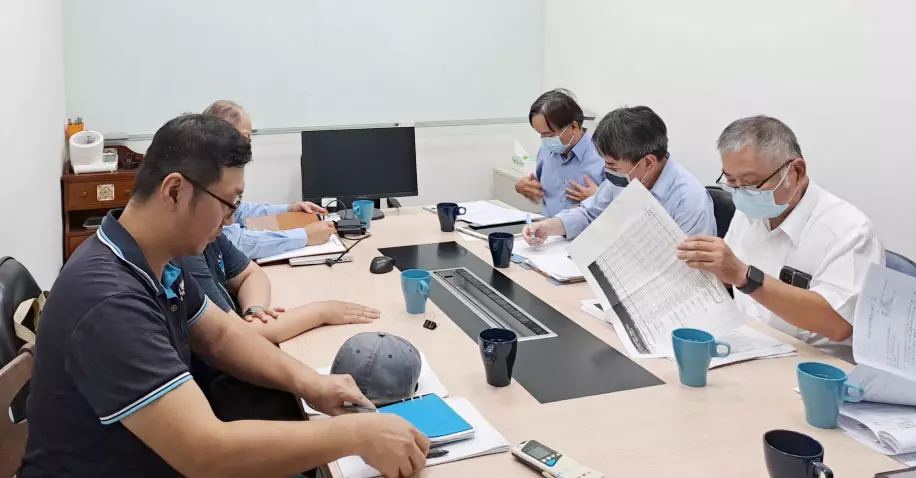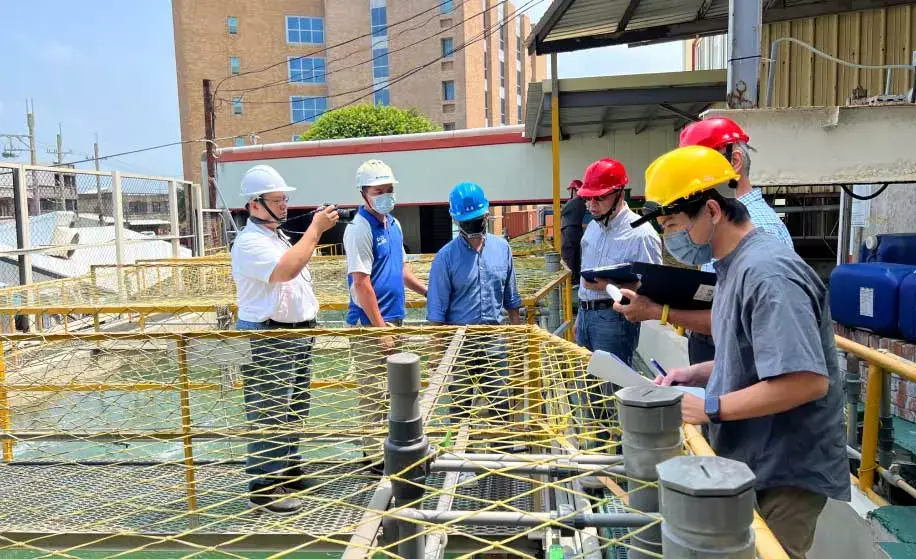 Professional Engineer Inspection
Professional Engineer Inspection
Environmental engineers play a critical role in assisting the government in reviewing pollution prevention facilities and safeguarding environmental quality. According to the "Professional Engineer Act", environmental engineers must pass the national professional examination to obtain certification and must also have at least two years of practical experience in environmental engineering before they can officially practice.
To ensure that professional environmental engineers apply their expertise and fulfill their responsibilities, the Ministry of Environment has formulated the "Regulations Governing Certification by Professional Environmental Engineers". These rules stipulate the responsibilities of professional environmental engineers in performing certification tasks, requiring them to conduct on-site inspections of pollution prevention (control) facilities (measures) and related records, and participate in planning and design activities before certification. Additionally, the work drafts prepared during the certification process must include the inspection results and on-site photos taken by the certifying professional engineers in order to strengthen the certification system and improve quality assurance.
The purpose of establishing the environmental engineer system is to leverage the professional expertise of engineers to verify whether the pollution prevention facilities installed by businesses match their application documents, thereby protecting public interest and maintaining environmental quality. To improve certification quality, prevent environmental pollution, and enhance corporate compliance, the administration has proposed three major initiatives:
The central government uses intelligent screening to select cases, then central governments cooperate with local governments to conduct inspections, covering about 10% of certification cases.
Scientific instruments are used to assist inspections, making the certification process more rigorous and thorough.
- Holding Experience Share Meetings, Enhancing Professional Capability
Irregular experience exchange meetings for the environmental protection agencies or inspection committee members are held to share certification inspection experiences and adjust inspection strategies, improving inspection accuracy. - Broad Composition of Inspection Committees, Comprehensive Professional Capability
Inspection committees consist of practicing professional engineers, experts, scholars, and law enforcement personnel from various sectors, enhancing the breadth and depth of inspections.

The administration has established the "Standard Operating Procedures for Environmental Protection Engineer Certification Inspections," prioritizing cases with high certification volume, poor certification quality, or newly licensed engineers for review. The inspection process begins with a document review, and if major concerns arise, on-site inspections follow. Findings are categorized into three levels based on the severity of deficiencies. Level 1 deficiencies require the engineer to make corrections. Level 2 deficiencies are flagged for re-inspection in the following year. When cumulative deficiencies reach Level 3, the number of inspections is increased and disciplinary procedures may be initiated.
Analysis of inspection results from the past three years shows that common deficiencies include errors in mass balance calculations, inaccurate or incomplete documentation, incomplete working papers, and inconsistencies with environmental engineering principles. The administration will continue implementing inspections to ensure that engineers fulfill their professional responsibilities and comply with relevant laws, allowing the public to receive reliable technical services and ensuring a consistent level of quality and safety, thereby strengthening trust in professional competence.

The engineer inspection system is not merely a supervisory mechanism but an important means to enhance engineers’ overall professional standards and help businesses comply with environmental regulations. Through professional inspections, impartial procedures, and educational support, the environmental engineer certification has become a key component of environmental protection. It also increases government and public confidence in corporate pollution prevention measures. Moving forward, the administration will continue adjusting and optimizing related systems based on practical experience and policy development to ensure sustainable environmental progress.
- Data Source: Division of Environmental Enforcement
- Publish Date: 2024-08-27
- Update Date: 2025-11-13

 Related Topics
Related Topics



